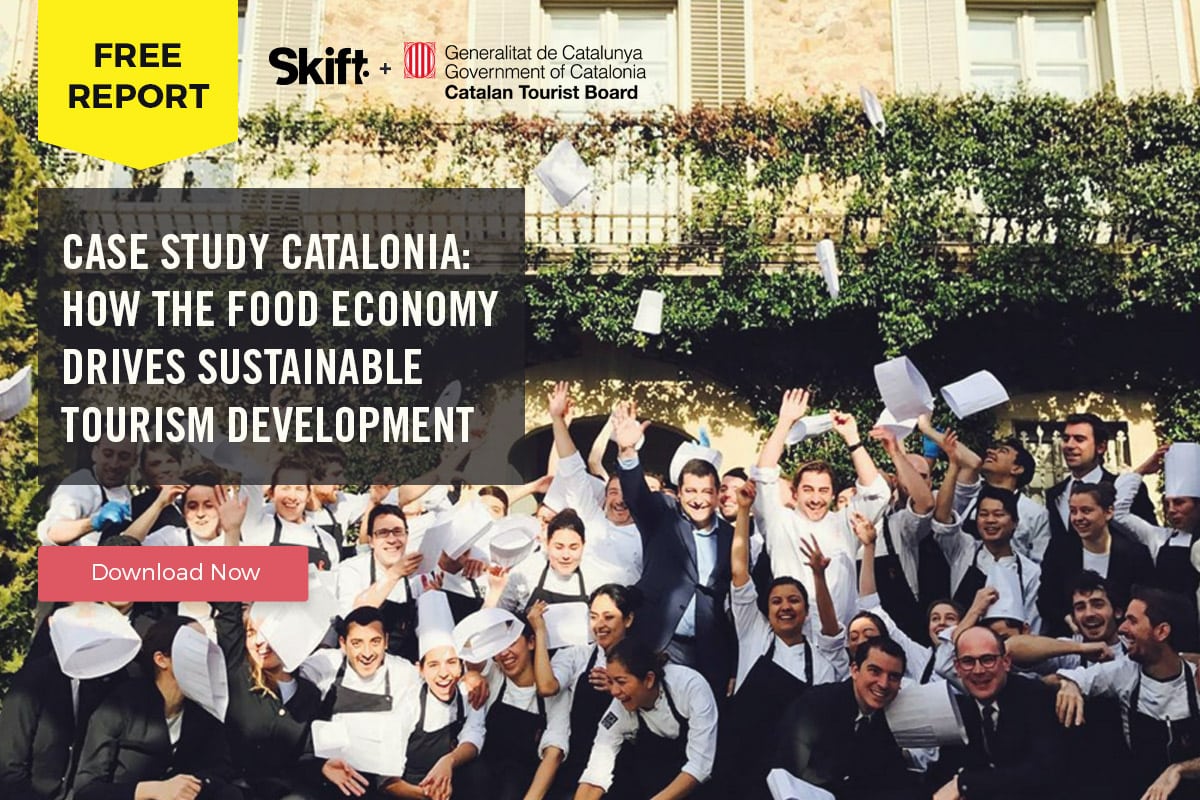Catalonia Case Study: How the Food Economy Drives Sustainable Tourism Development

Skift Take
This sponsored content was created in collaboration with a Skift partner.
How can destinations encourage and promote local food systems to foster best practices in sustainable tourism? Here we look to Spain as a prime example, and how local stakeholders can work toward a longer-term vision, where well-managed tourism equates to sustainable economic growth for Catalonia. This region boasts an interconnected and exciting ecosystem, which contributes to its sustainable, culinary footprint.
In this report you will learn:
- What sustainability means for the travel industry in light of overtourism
- The rise of the “local food” movement, and its impact on tourism
- The connection between food systems, economic development, and sustainable tourism
- Food, culture and Catalonia’s rural tourism industry
This report was researched and written by Skift's head of research Luke Bujarski. Among other pursuits, Luke lived and worked in Barcelona for a number of years. He holds a bachelor’s degree in Spanish linguistics, and a Masters in Urban Planning from the University of Illinois at Urbana Champaign, with a concentration in regional economics.




